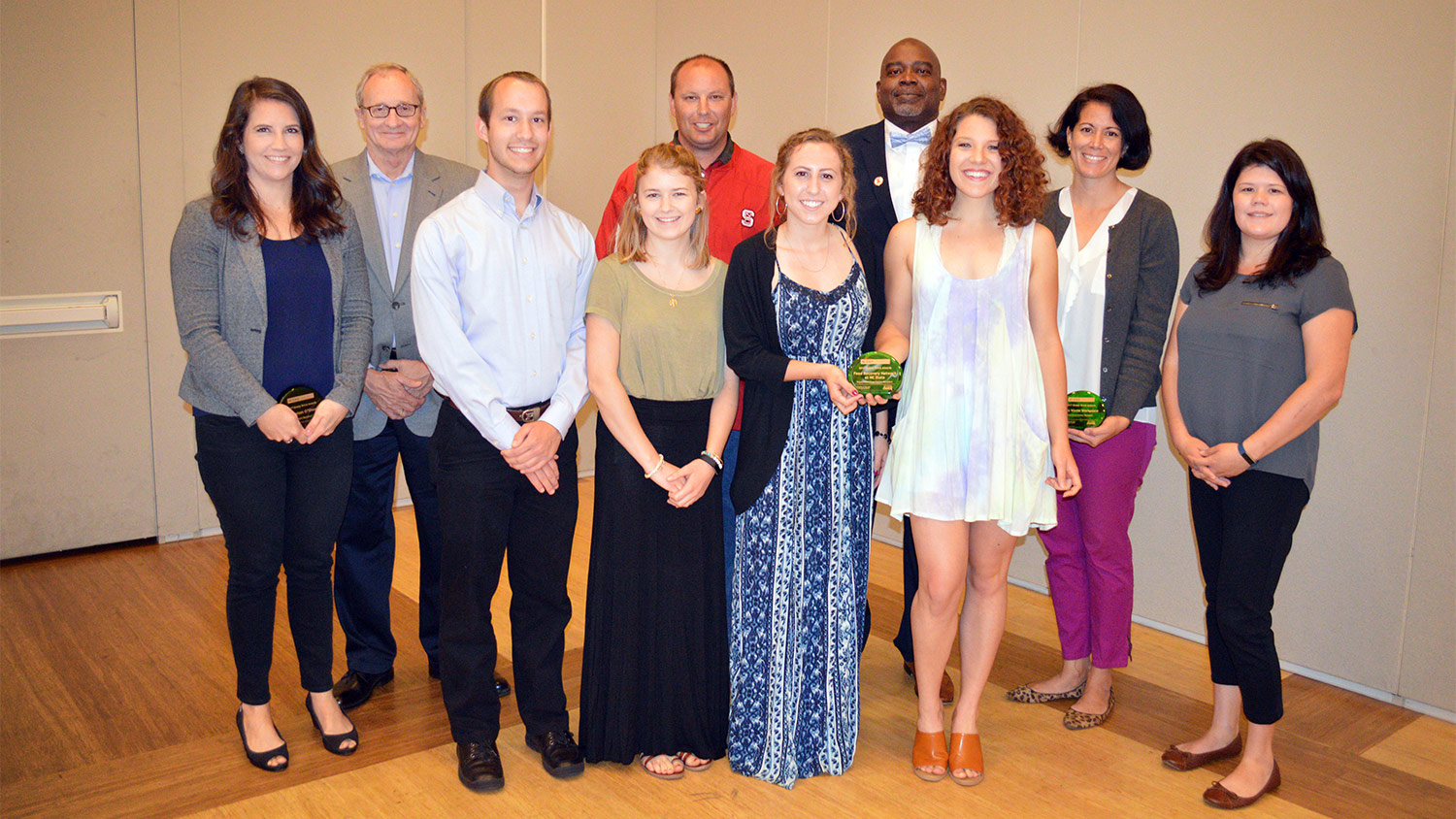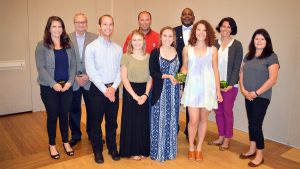Green Brick Awards Honor Sustainability Achievements


Three members of the NC State community, a student organization and an innovative waste-reducing project were honored with Green Brick Awards from the NC State Sustainability Council on April 20 for outstanding contributions to sustainability.
Sponsored by Coca-Cola, the Green Brick Awards have recognized sustainability achievements at NC State since 2004. Each spring nominations are received from the campus community and a selection committee determines a winner in the following categories: Student, Faculty Member, Staff Member, Innovation/Impact and Campus Department or Student Organization.
Jenkins MBA student Shannon O’Shea is the student recipient. O’Shea helped organize a sustainable foods conference at NC State called FoodCon and has served as a team leader for B Corp Clinic, which pairs students with local businesses interested in sustainability certification. She is a Business Sustainability Collaborative Associate in the Poole College of Management and president of NC State’s graduate chapter of Net Impact, a sustainability-focused student organization. Last spring, she was part of two MBA student teams that earned recognition in sustainability business competitions.
This year’s staff winner is Derek Liles, facilities supervisor at Carter-Finley Stadium. Liles serves as the Athletics point-of-contact for the WE Recycle program and the Carter-Finley Composts program. His efforts allowed the stadium to post its all-time season record: a 27 percent waste diversion rate. Derek worked to integrate compost collection in post-game stadium cleaning and also obtained support for adding recycling bag distribution stations in tailgate parking lots, which allowed Athletics to remove hundreds of trash bins and reduce landfilled items by 29,000 pounds.
This year’s faculty winner is Dr. Larry Nielson, who was responsible for helping create the university’s Campus Environmental Sustainability Team. This team was the foundation for much of the sustainability progress NC State has made. He also helped kickstart the campus climate commitment and the winter energy setback program, which has saved more than $3 million since it began in 2005. He helped integrate sustainability into Hunt Library, preserve Lake Raleigh Woods and educate thousands through teaching and campus sustainability events.
This year’s campus organization winner is the Food Recovery Network, a student organization that partners with NC State Dining to donate leftover food from campus dining halls to local nonprofit organizations that serve the homeless. Food Recovery Network has built a network of 100 student volunteers who take turns collecting leftover food from dining halls three times a week. These efforts not only help the community but also address food waste. So far, the group has donated more than 3,500 pounds of food to two Raleigh nonprofits.
This year’s innovation and impact winner is Zero Waste Workplace, a waste diversion program of NC State’s Waste Reduction and Recycling Office. Since starting last summer, the program has been implemented in Administrative Services Buildings 1, 2 and 3 as well as other Facilities Division offices. So far, the program has diverted 3,000 pounds of waste from the landfill through composting. There has also been a 32 percent increase in recycling in these buildings. The program has been so successful that 21 other buildings have requested the program.
- Categories: